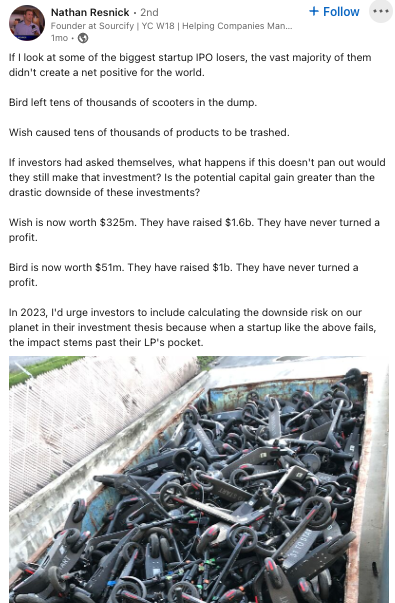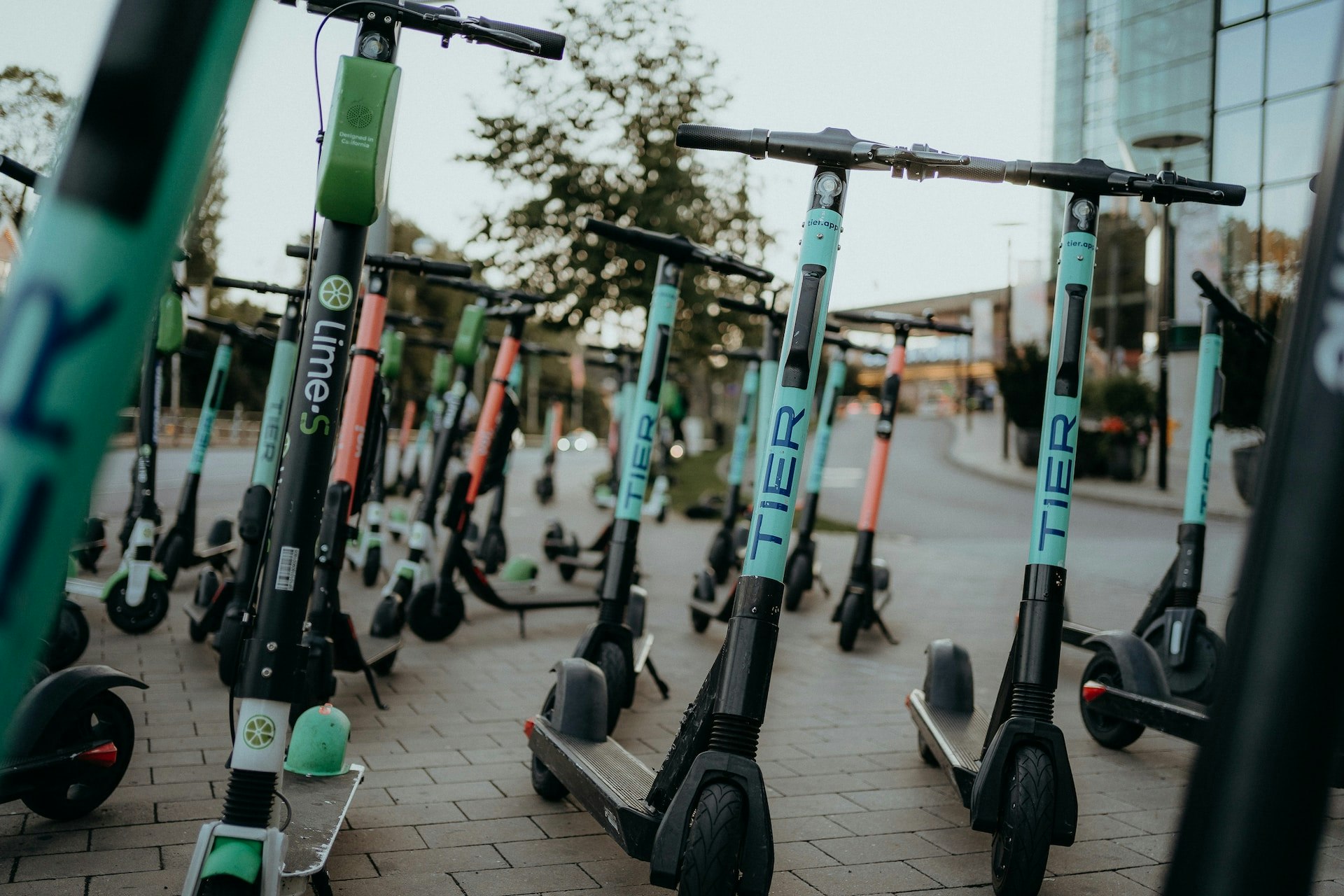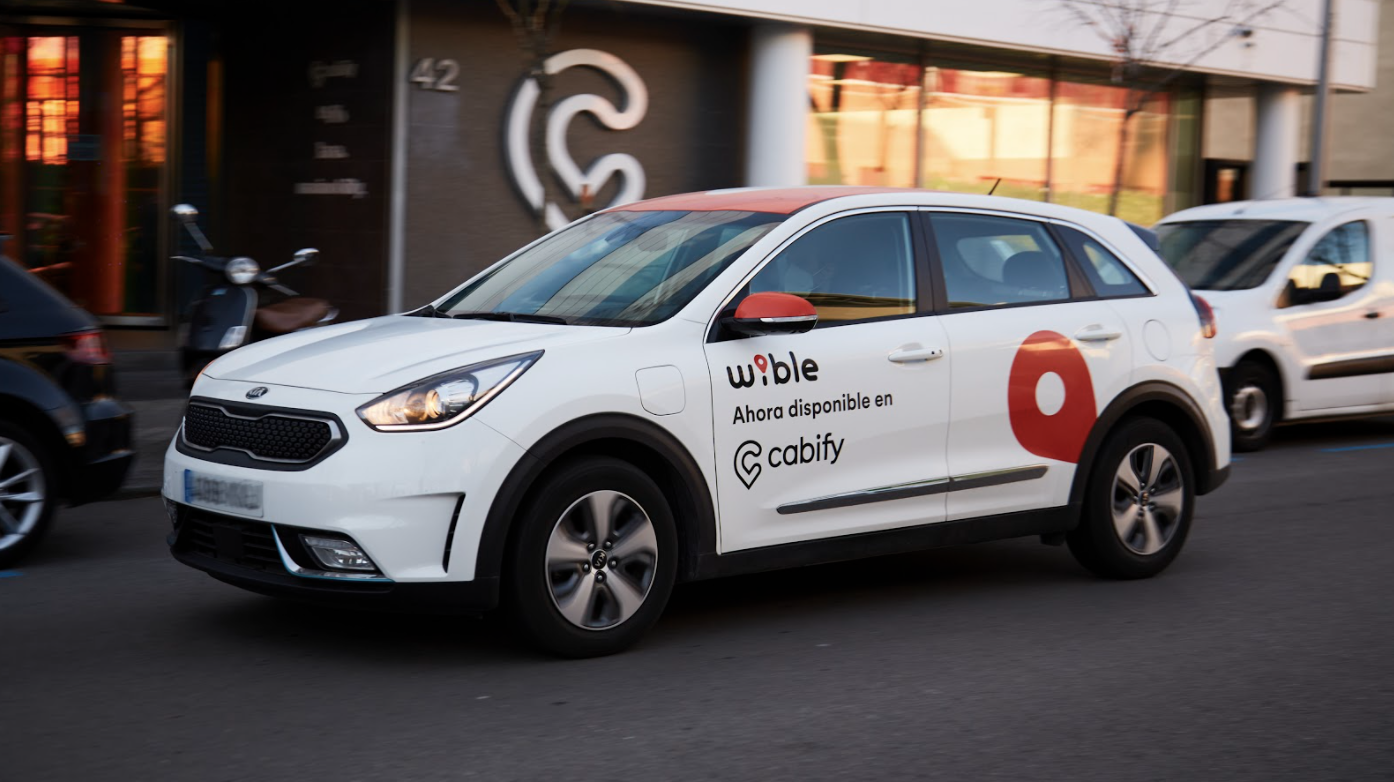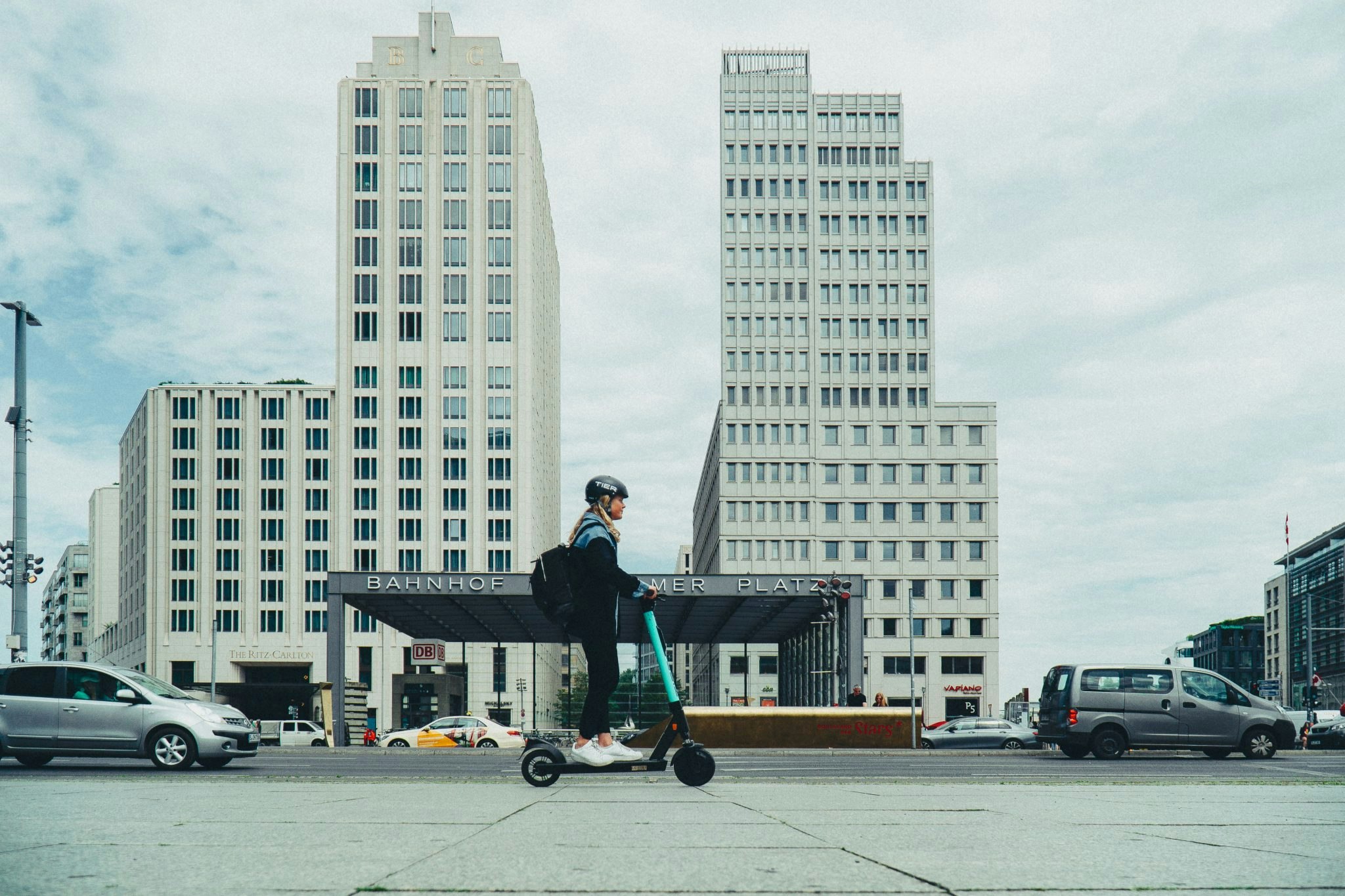On April 2 the people of Paris will vote on whether escooter rental should be banned from the city. It’s the first time a European capital has taken such a step, with the mayor describing the services as “highly divisive” and other local politicians saying they’ve turned Paris into a “jungle” where “people are afraid to cross the street”. The result seems too close to call, with one Ipsos poll suggesting 40% of people are satisfied with them.
Escooter sharing services have already been banned in Barcelona, while the Netherlands doesn't permit any escooters on the roads. In many cities around Europe operators now have to gain a licence or win a tender in order to put their vehicles on the streets. In the UK, councils are currently running trials to see how people find shared escooter services on their streets.
Many are now questioning whether escooters — touted as a low-carbon solution to congested and polluted cities — are really all they’re environmentally cracked up to be.
But, even more crucially for the VCs who’ve plunged more than $5bn into the sector globally since 2017 — they're asking whether the business model works at all.
In November last year, US micromobility company Bird — a startup Sequoia once valued at $1.7bn and predicted would “write the next chapter in transportation innovation” — warned it could go bankrupt if it didn’t raise more money.
So, is this the beginning of the mother of all VC dumpster fires?
To find out, Sifted spoke to experts from the worlds of academia, policy making and VC, as well as the European micromobility companies trying to make a go of it.
The business model
One person who remembers the early promise of Europe’s escooter companies is Paul Murphy, partner at Lightspeed Ventures, who led his previous firm Northzone’s investment into German micromobility startup Tier in 2018.
He says that, while US companies had an advantage in being first (Bird launched in 2017, a year earlier than most European players), European scooter startups were able to benefit from the early investment into American rivals: “The US VCs basically subsidised the R&D of these scooters, to the tune of hundreds of millions of dollars for us in Europe.”
Increasing the utilisation rate of scooters and extending the lifecycle of the scooter are the biggest levers you can pull
This, Murphy says, meant that European companies began operating with scooters that lasted longer on the roads — one of the key factors in reaching positive unit economics.
“Increasing the utilisation rate of scooters and extending the lifecycle of the scooter are the biggest levers you can pull,” he explains. “Then after that you’ve got your servicing costs… That’s why things like swappable batteries are so crucial.”
Swappable batteries bring down operational costs and mean that scooters can stay in use while batteries are charged.
The biggest surviving European micromobility startups — Estonia’s Bolt, Germany’s Tier, the Netherlands’ Dott and Sweden’s Voi — all tell Sifted that 100% of their scooter fleets now have swappable batteries.
Voi says that each of its scooters are used on average twice a day, while data from Fluctuo shows Dott's scooters are also used fewer than 2.5 times per day.
When it comes to hitting profitability, Tier tells Sifted it’s targeting the milestone by the end of this year, while Voi is targeting being Ebitda-positive by the same point, and that “full profitability should follow not far after that”.
Dott, meanwhile, says it’s “inches away from being Ebitda-positive” and Bolt says it’s been Ebitda-positive since 2019.
The numbers
These businesses are all working on pretty different scales, in terms of the numbers of cities and towns they operate in. Tier’s scooter sharing service is active in 560 cities, while Dott’s is active in 40.
And while the Paris vote is a bellwether moment for the industry, it’s important to remember that a lot of the places these startups operate in aren’t regulated. Dott and Voi both tell Sifted that 40% of the cities they operate in aren’t regulated.
When it comes to app downloads, Bolt is the leader by far, but that’s because it also offers other services like car sharing, taxi hailing and food delivery. According to data from Apptopia, Voi is the only app that hasn’t seen a year-on-year increase in downloads. Voi tells Sifted its total app downloads have increased by 150% since 2020.
Bolt has also raised by far the most out of all the startups ($1.9bn), with Dott having landed the least VC cash — $175m — since founding. Tier has raised $560m from VCs including Northzone and Speedinvest; Voi $466m from the likes of Balderton Capital and Creandum.
It’s difficult to say for sure what these privately held businesses are worth today, but one clue comes from Swedish public investor VNV Global’s year-end report, published in January 2023.
It cut the “fair value” of its investment in Voi by 40% for the last quarter of 2022. This is not the first time VNV Global, which has a 23.1% stake in the startup, has downgraded its valuation. Since the end of 2021, when Voi was valued at $1bn, the company’s fair value has dipped by 63%, according to VNV — giving Voi a reduced “fair” valuation of 3.7bn SEK (€326m).
The report said that the dip in valuation was influenced by the performance of the sector as a whole (and Voi’s competitors’ valuations) — Bird’s stock price has collapsed from a 2021 high of $10.37 to $0.20 today.
Closing inefficient cities
Operating in more markets isn't necessarily a winning formula. Dott’s Nicolas Gorse — regional manager for France, Belgium and Germany — tells Sifted that the company is “only operating in markets which are unit economy positive” and that it’s left cities including Munich, Cologne, Aachen and Bonn where it “could not find a path to profitability, due to regulation or due to the demand dynamics".
Tier, which operates in more than 560 cities, says it may also need to close some markets as it aims for profitability.
“There are some cities that are not delivering as we expected, and so we may have some decisions to make in the near future about this,” says Erwann Le Page, Tier’s director of public affairs for western Europe.
When asked why European companies appear to be faring better than Bird (which last year announced it was pulling out of Germany, Sweden, and Norway and “several dozen” other cities), Murphy says that scooters are extremely “operationally intense businesses” to run, and that the Florida-based company seems to have been run far less efficiently than European players.
“I don't know Bird’s business well enough to know what sort of cracks existed,” he says. “But I can tell you that, given the amount of capital they've raised and where they are today… there's a huge, huge difference in how these things were run from the outset compared to European operators.”
He adds that European cities are a better natural market for escooters, due to being less spread out and already having more of a cycling culture.
Are escooters better for the environment?
Escooter startups didn’t just promise to make investors heaps of money when they launched; they also said they’d help people move around cities in a more environmentally friendly way. But are they achieving that?
Shared scooters and ebikes have a higher impact [than cycling and walking], a heavier battery, and all the operational CO2 impacts as well
It’s difficult to make generalisations about whether scooters are net positive or negative for the environment, but some studies on individual cities give us some clues.
A 2022 paper on consumer behaviour and micromobility in Zurich by researchers at ETHZurich concluded that, while personal escooters “emit less CO2 than the transport modes they replace”, escooters used in sharing schemes “emit more CO2 than the transport modes they replace”.
This, according to study coauthor Kay Axhausen, is because the use of shared micromobility options often replace lower-carbon cycling and walking.
While public transport and bike production still have a climate impact, “shared scooters and ebikes have a higher impact, a heavier battery, and all the operational CO2 impacts as well.”
Escooter companies all say they’re reducing car usage in cities, but Axhausen says that it’s too early to claim that micromobility solutions do actually encourage car switchover to a significant degree.
His study found that while shared escooters replaced cars in 12% of cases in Zurich, they also substituted walking at a rate of 51%. Another study, focused on Paris, recorded that 72% of respondents shifted to escooter use from public transport and walking rather than from cars.
A survey conducted by Bolt tells a different story. After surveying 7,000 customers across 17 countries in December last year, the company estimates that its micromobility alternatives replaced around 20m kilometres of car journeys in 2022.
The Global Warming Potential (GWP) of Tier escooters “is dominated by the production phase
Tier also claims to replace a significant number of car trips, citing “a mode shift from cars to escooters in Paris of 19%”, meaning that around one in five scooter rides substitutes a car journey.
A report on the first year of London’s escooter trial, meanwhile, found that the rate of scooters replacing car rides went up from 12% to 21% over the course of the year.
But it’s not just the usage that factors into the sustainability of these models: the production of the vehicles also has an impact.
A 2021 study by the Bochum University of Applied Sciences into the life-cycle assessment of Tier vehicles found that the Global Warming Potential (GWP) of Tier escooters “is dominated by the escooter production phase”, and recommended that the company find a substitute for aluminium, improve the lifetime of vehicles and reduce the frequency of battery replacements.

The escooter companies all tell Sifted that their scooters now last for five to seven years, decreasing the environmental impact of their services. They add that scooters also reduce air pollution in cities, and that any drop in car journeys helps keep the air cleaner.
The jury’s out
As cities like Paris decide on the future of escooters, another big factor at play is the public perception of sharing schemes.
After the UK began trialling the programmes in 2021, escooter-related deaths in the country tripled and the number of injuries almost doubled.
Tier’s Le Page acknowledges accidents are on the rise, but he highlights that the number of accidents are growing at a slower rate than the growth of users: over the past three years in Paris, accident rates increased by 180%, but usage has grown by 489%.
Escooter companies are now deploying a range of safety measures to keep regulators happy. These include licence plates on vehicles, GPS tracking to prevent scooters being used where they shouldn’t be and strict speed limits.
What cities and the operators are working through is, ‘Can you come up with a level of regulation that gives people comfort that you're providing an accessible and safe service with something that can break even for the operator?’
Michael Hurwitz, former director of transport innovation at government body Transport for London, says that cities’ adoption of shared micromobility schemes presents a tricky balancing act.
“I think for cities, the jury is out,” he says. “What cities and the operators are working through is, ‘Can you come up with a level of regulation that gives people comfort that you're providing an accessible and safe service with something that can break even for the operator?’”
He adds that the acceptance of shared micromobility services will likely be much higher in cities that don’t have things like public bike rental schemes already in place.
It’s important to remember that all of the European operators also now offer electric bike rental schemes, and Hurwitz says they “seem to be an alternative which is less controversial and creates less tension” than scooters.
Dmitri Pivovarov, VP of rentals at Bolt, agrees that much of the scepticism towards scooters comes from the novelty factor: “It's a new mode of moving around and of course it falls under scrutiny.”
And while Paris may ban scooters entirely, Bolt, Voi, Tier and Dott are operating in hundreds of cities around the world. If their profitability claims are to be believed, they can keep regulators on side and keep decreasing the environmental impacts of their vehicles, European startups might just succeed where Bird failed.
Tim Smith is senior reporter at Sifted. He tweets from @timmpsmith. Sadia Nowshin is editorial assistant at Sifted. She tweets from @sadianowshin_. Mimi Billing is Sifted’s Nordic correspondent. She also covers healthtech, and tweets from @MimiBilling


